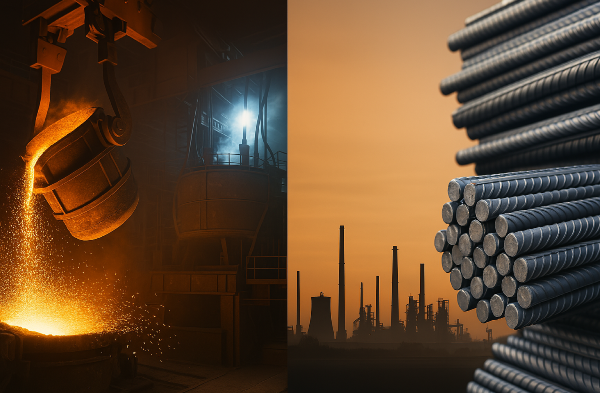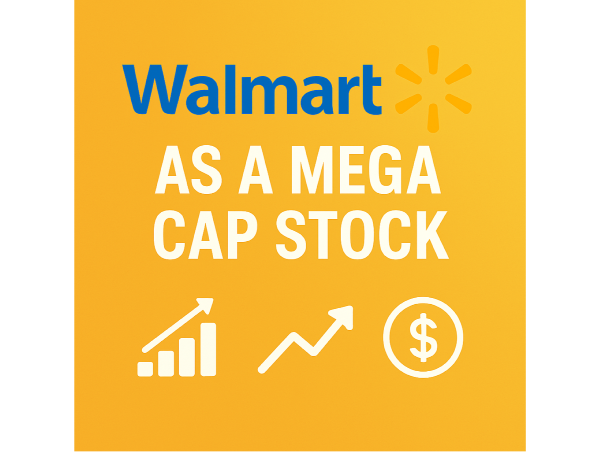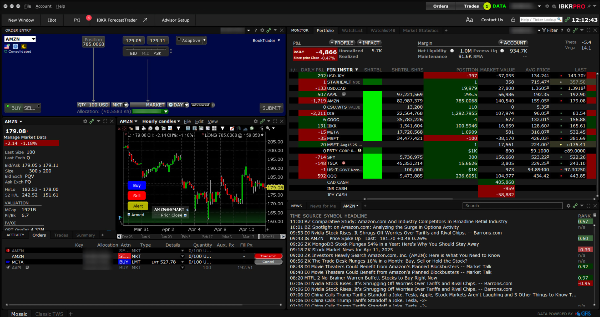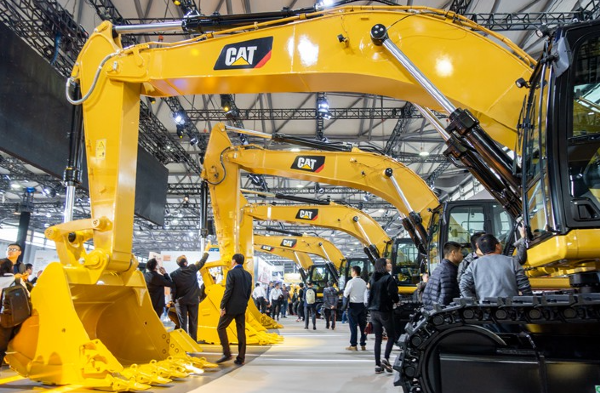The Top Steel stocks by profitability
Steel is the backbone of modern infrastructure, powering industries from construction to automotive manufacturing. As global demand fluctuates, investors seek companies with strong profitability to ensure stable returns. This guide explores the most profitable steel companies, analyzing key financial metrics, market trends, and competitive advantages to help investors make informed decisions.
Understanding Steel Industry Profitability
Steel industry profitability hinges on several key factors, including fluctuating raw material costs, shifting demand cycles, and operational efficiency. Companies generate revenue through large-scale production, strategic distribution networks, and high-margin specialty steel products. Macroeconomic trends, such as infrastructure investments and trade policies, significantly impact steel pricing and profit margins, making adaptability crucial for sustained financial success.
Most Profitable Steel Companies and Their Financials
Vale (NYSE: VALE) is a global leader in steel and mining, boasting a net income of $5.568B. The company benefits from its extensive iron ore production and logistics network, which enables cost-efficient distribution across international markets. Despite recent fluctuations in commodity prices, Vale maintains strong profitability through strategic investments and operational efficiency Financials - Income Statement - Stock Analysis](https://stockanalysis.com/stocks/vale/financials/).
Fortescue Metals Group (OTC: FSUGY) has demonstrated robust financial performance with $3.902B in net income. As a major iron ore producer, Fortescue leverages its high-grade reserves and efficient mining operations to sustain profitability. The company’s focus on cost reduction and technological advancements has helped it remain competitive in the global steel supply chain.
Nippon Steel (OTC: NPSCY), Japan’s largest steel producer, reported $3.384B in net income. The company benefits from its diversified product portfolio, including high-quality specialty steels used in automotive and construction industries. Nippon Steel’s strategic expansions and technological innovations continue to drive its financial success.
Gerdau (NYSE: GGB), a Brazilian steel giant, recorded $2.063B in net income. The company’s strong presence in long steel products and its focus on sustainable production methods contribute to its profitability. Gerdau’s ability to adapt to market trends and optimize its operations has helped it maintain steady financial growth.
Nucor Corporation (NYSE: NUE), a leading U.S. steel producer, posted $2.018B in net income. Known for its innovative mini-mill technology, Nucor benefits from lower production costs and a flexible supply chain. The company’s commitment to sustainability and strategic acquisitions further strengthen its market position.
Acerinox (OTC: ANIOY), a European steel manufacturer, reported $1.636B in net income. Specializing in stainless steel production, Acerinox capitalizes on strong demand from industries such as automotive and aerospace. The company’s focus on efficiency and product innovation supports its profitability.
ArcelorMittal (NYSE: MT), a global steel powerhouse, achieved $1.339B in net income. Despite market volatility, the company maintains a strong presence across multiple regions, benefiting from its diversified operations and strategic investments in advanced steel technologies.
Steel Dynamics (NASDAQ: STLD), a U.S.-based steel company, recorded $1.17B in net income. The company’s integrated steel production model and focus on value-added products contribute to its financial strength. Steel Dynamics continues to expand its operations, reinforcing its position in the competitive steel industry.
Key Drivers of Profitability in Steel Companies
Steel companies maximize profitability through efficient production methods, such as electric arc furnaces, which reduce costs compared to traditional blast furnaces. Optimized supply chains and strategic cost management further enhance margins, while government policies, tariffs, and trade agreements shape competitive dynamics. Companies that adapt to regulatory shifts and market fluctuations position themselves for sustained financial success.
Environmental, Social, and Governance (ESG) considerations are reshaping the steel industry, with leading firms integrating sustainable practices to reduce carbon emissions and improve operational efficiency. The push for green steel, driven by hydrogen-based production and recycling initiatives, is influencing stock valuations and long-term investment strategies.
Conclusion
Steel investing requires a keen understanding of profitability drivers, sustainability trends, and market risks. Companies that embrace efficiency and ESG initiatives are well-positioned for long-term success in a rapidly evolving industry. Strategic investments in steel stocks, ETFs, and diversified commodity funds offer opportunities for both short-term gains and steady growth.
Material Stocks Quick Find List 🚀
Discover more about the material sector with our collection of in depth market exploration and and hot investment topics.
General 🌟
Construction Stocks 🏗️
Lumber Stocks 🌲
International Material Stocks 🌍
Metal Stocks ⚙️
Aluminum Stocks ✨
Steel Stocks 💪
Precious Metal Stocks 💎
Material Stocks with Dividends 🎯
Industrial Gas Stocks 🚀
Rare Earth Stocks 🌐
Advanced Materials 🔬























Steel is the backbone of modern infrastructure, powering industries from construction to automotive manufacturing. As global demand fluctuates, investors seek companies with strong profitability to ensure stable returns. This guide explores the most profitable steel companies, analyzing key financial metrics, market trends, and competitive advantages to help investors make informed decisions.
Understanding Steel Industry Profitability
Steel industry profitability hinges on several key factors, including fluctuating raw material costs, shifting demand cycles, and operational efficiency. Companies generate revenue through large-scale production, strategic distribution networks, and high-margin specialty steel products. Macroeconomic trends, such as infrastructure investments and trade policies, significantly impact steel pricing and profit margins, making adaptability crucial for sustained financial success.
Most Profitable Steel Companies and Their Financials
Vale (NYSE: VALE) is a global leader in steel and mining, boasting a net income of $5.568B. The company benefits from its extensive iron ore production and logistics network, which enables cost-efficient distribution across international markets. Despite recent fluctuations in commodity prices, Vale maintains strong profitability through strategic investments and operational efficiency Financials - Income Statement - Stock Analysis](https://stockanalysis.com/stocks/vale/financials/).
Fortescue Metals Group (OTC: FSUGY) has demonstrated robust financial performance with $3.902B in net income. As a major iron ore producer, Fortescue leverages its high-grade reserves and efficient mining operations to sustain profitability. The company’s focus on cost reduction and technological advancements has helped it remain competitive in the global steel supply chain.
Nippon Steel (OTC: NPSCY), Japan’s largest steel producer, reported $3.384B in net income. The company benefits from its diversified product portfolio, including high-quality specialty steels used in automotive and construction industries. Nippon Steel’s strategic expansions and technological innovations continue to drive its financial success.
Gerdau (NYSE: GGB), a Brazilian steel giant, recorded $2.063B in net income. The company’s strong presence in long steel products and its focus on sustainable production methods contribute to its profitability. Gerdau’s ability to adapt to market trends and optimize its operations has helped it maintain steady financial growth.
Nucor Corporation (NYSE: NUE), a leading U.S. steel producer, posted $2.018B in net income. Known for its innovative mini-mill technology, Nucor benefits from lower production costs and a flexible supply chain. The company’s commitment to sustainability and strategic acquisitions further strengthen its market position.
Acerinox (OTC: ANIOY), a European steel manufacturer, reported $1.636B in net income. Specializing in stainless steel production, Acerinox capitalizes on strong demand from industries such as automotive and aerospace. The company’s focus on efficiency and product innovation supports its profitability.
ArcelorMittal (NYSE: MT), a global steel powerhouse, achieved $1.339B in net income. Despite market volatility, the company maintains a strong presence across multiple regions, benefiting from its diversified operations and strategic investments in advanced steel technologies.
Steel Dynamics (NASDAQ: STLD), a U.S.-based steel company, recorded $1.17B in net income. The company’s integrated steel production model and focus on value-added products contribute to its financial strength. Steel Dynamics continues to expand its operations, reinforcing its position in the competitive steel industry.
Key Drivers of Profitability in Steel Companies
Steel companies maximize profitability through efficient production methods, such as electric arc furnaces, which reduce costs compared to traditional blast furnaces. Optimized supply chains and strategic cost management further enhance margins, while government policies, tariffs, and trade agreements shape competitive dynamics. Companies that adapt to regulatory shifts and market fluctuations position themselves for sustained financial success.
Environmental, Social, and Governance (ESG) considerations are reshaping the steel industry, with leading firms integrating sustainable practices to reduce carbon emissions and improve operational efficiency. The push for green steel, driven by hydrogen-based production and recycling initiatives, is influencing stock valuations and long-term investment strategies.
Conclusion
Steel investing requires a keen understanding of profitability drivers, sustainability trends, and market risks. Companies that embrace efficiency and ESG initiatives are well-positioned for long-term success in a rapidly evolving industry. Strategic investments in steel stocks, ETFs, and diversified commodity funds offer opportunities for both short-term gains and steady growth.
Material Stocks Quick Find List 🚀
Discover more about the material sector with our collection of in depth market exploration and and hot investment topics.
General 🌟
Construction Stocks 🏗️
Lumber Stocks 🌲
International Material Stocks 🌍
Metal Stocks ⚙️
Aluminum Stocks ✨
Steel Stocks 💪
Precious Metal Stocks 💎
Material Stocks with Dividends 🎯
Industrial Gas Stocks 🚀
Rare Earth Stocks 🌐
Advanced Materials 🔬